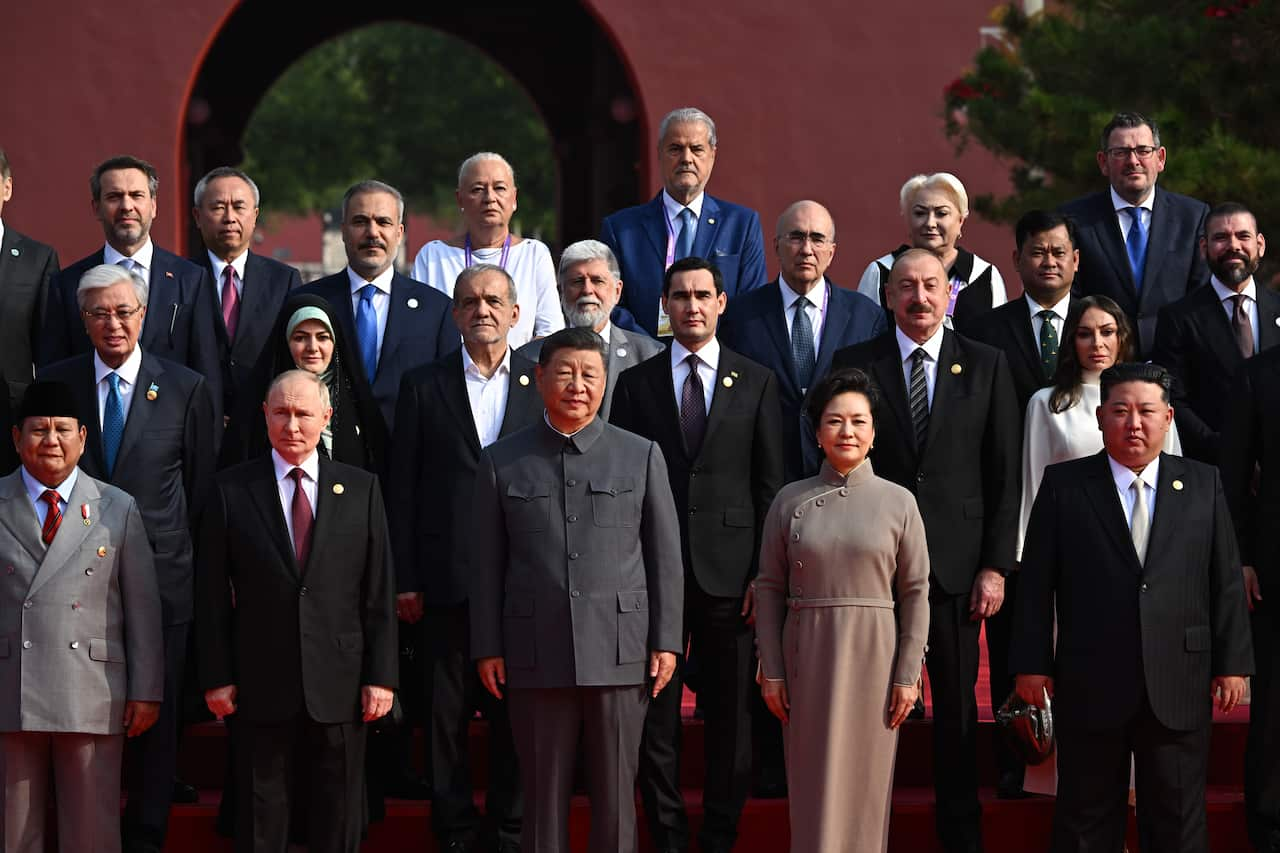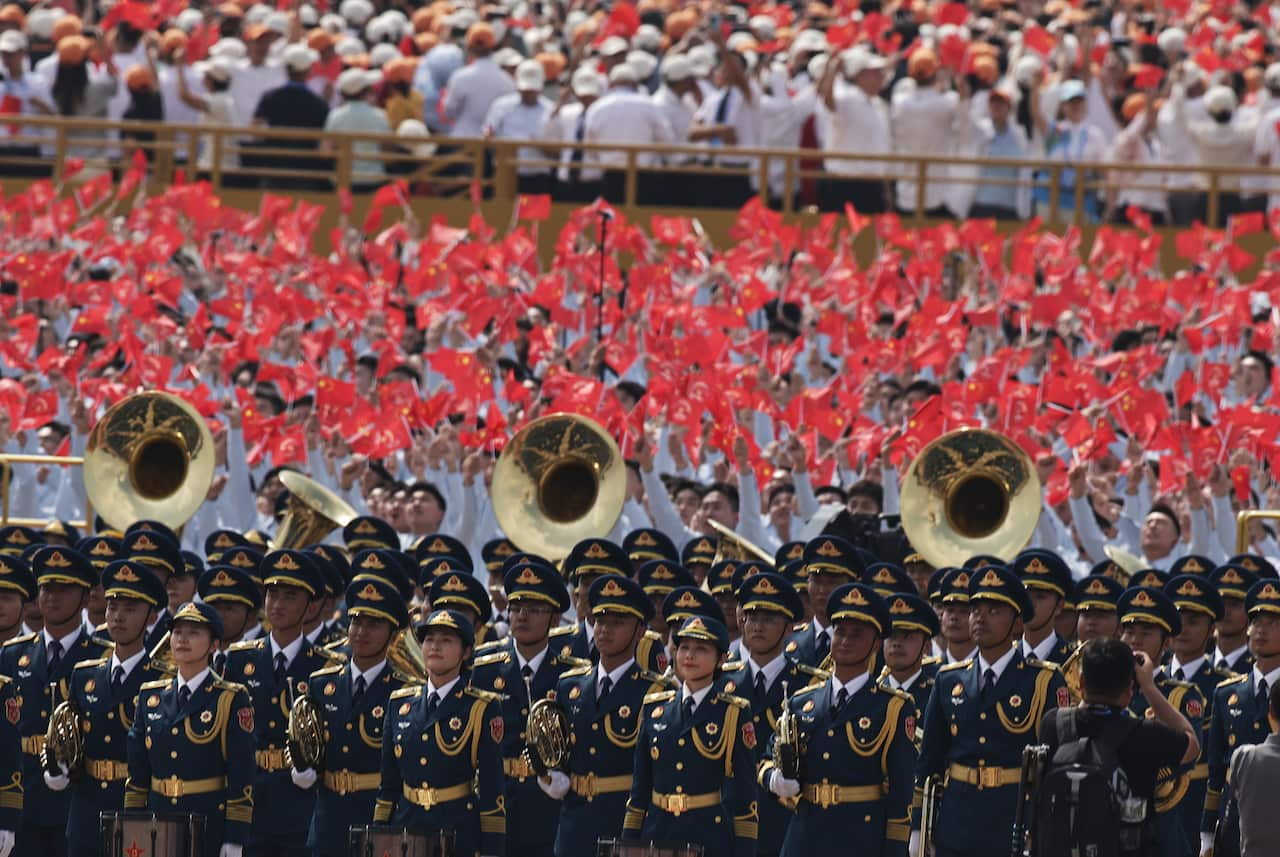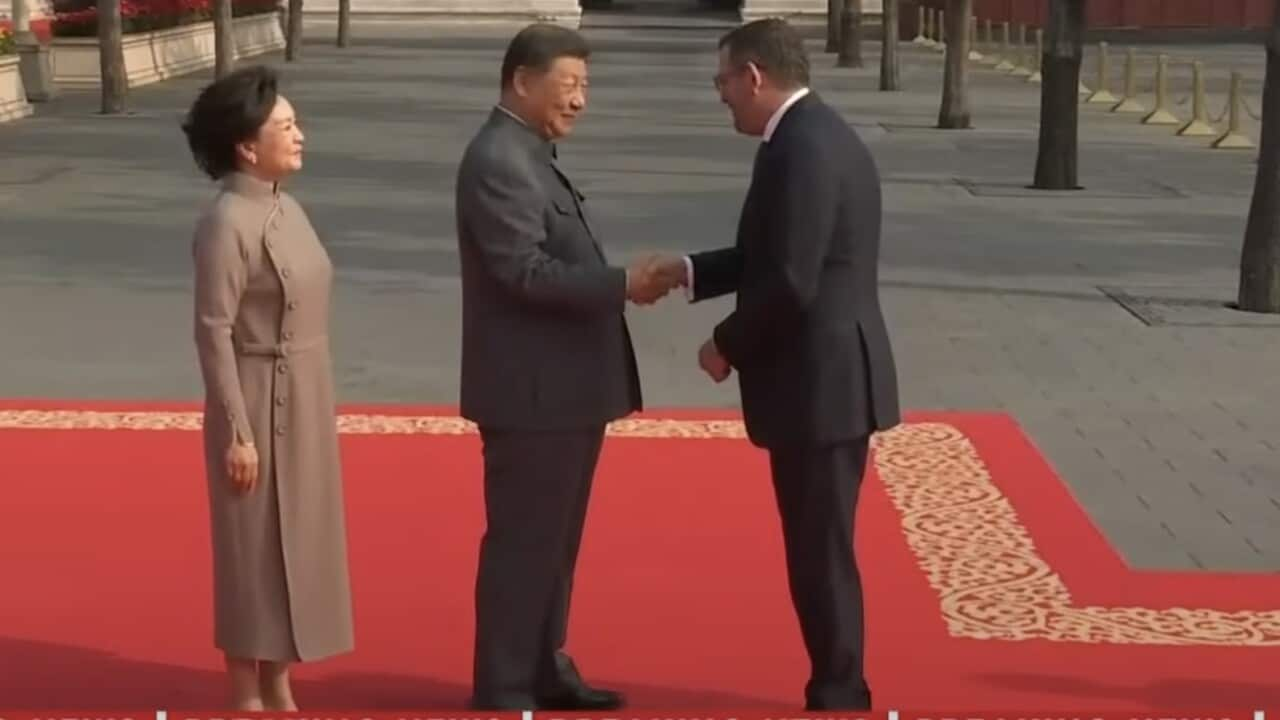Former Victorian premier Daniel Andrews has defended a controversial visit to China to attend a military parade alongside dictators despite criticism from both sides of politics on the optics of his attendance.
Andrews attended a parade in Beijing on Wednesday to mark the 80th anniversary of the end of the Second Sino-Japanese War and World War Two, alongside Russian President Vladimir Putin and North Korean dictator Kim Jong-un.
At the event's red carpet, Andrews was pictured shaking hands with Chinese President Xi Jinping. He later posed in a group photo that included Xi, as well as Russian President Vladimir Putin and North Korean leader Kim Jong-un.
Andrews said his visit followed a formal invitation to the event.
He said while maintaining ties with China was important, he condemned the actions of other leaders who attended the parade.
"I've said for years that a constructive relationship with China — our largest trading partner — is in Australia's national interest and hundreds of thousands of Australian jobs depend on it. That hasn't changed," he said in a statement.
"Just so there's no conclusion — I have condemned Putin and his illegal war in Ukraine from day one. That's why he banned me from Russia last year."

Andrews criticised Iran in the statement, after the Middle East nation's leader attended the event.
"My support for Israel and Australia's Jewish community has been outspoken and unwavering, and I unequivocally condemn Iran for its attacks on Australia, Israel and elsewhere around the world," he said.
He said the event was a chance to meet with leaders in the region, such as former New Zealand prime ministers John Key and Helen Clark.
Prime Minister Anthony Albanese has faced questions over the attendance of Andrews at China's military parade, which has drawn criticism from the federal Opposition and a former state leader.
Criticism was also directed at former NSW premier and federal Labor minister Bob Carr, who was initially believed to be attending the parade.
Carr later told Nine newspapers he would not be attending what he described as a "Soviet-style" parade, and said he would instead attend separate indoor events and address Chinese foreign policy think tanks.
Wednesday's event was China's largest-ever military parade, with tanks, state-of-the-art aircraft, and perfectly synchronised troops filling the streets of Beijing, marking a show of China's growing firepower and geopolitical clout.
On Wednesday morning, the federal Opposition sought to cast the decision to attend as a show of poor judgement.
"I think for those two individuals, they need to explain why they are attending a military parade that Vladimir Putin is attending and what that actually tells the world," Opposition leader Sussan Ley said, before Carr confirmed he would not be attending.
Opposition home affairs spokesperson Andrew Hastie described the event as a "parade for dictators" and a "celebration of the Chinese Communist Party".

On Thursday, Albanese said he was not responsible for Andrews' actions, and called the Coalition "delulu" (delusional) for questioning why he had not condemned the former premier.
"I am not responsible for what every Australian citizen does," he told parliament.
"What I am responsible for is what our government does."
Australia's ambassador to China was not in attendance.
The last time Australia sent a representative to the 70th anniversary of the war's end was in 2015, when then-prime minister Tony Abbott chose government minister Michael Ronaldson.
Also questioned on the matter was former Queensland Labor premier Annastacia Palaszczuk. She told Sky News on Wednesday that if it were her, "it'd be a definite N-O".
"I respect Dan, I respect Bob, but I think they've just gone the next level," she said, before Carr had confirmed he would not be attending the parade.
"Go there for a holiday, do your business talks, but there's no need to attend this military parade."
SBS News has contacted Andrews for comment.
Victoria's government minister, Vicki Ward, defended Andrews' attendance at the parade, pointing to the importance of diplomatic ties.
"He's going as a private individual. These are choices that he's made in a private capacity," she told reporters.
"It's important that we maintain good, healthy relationships with those countries that are in our region.
"That we as a government look after the interests of this state, whether it is economic or whether it is social."
Andrews travelled to China seven times as premier, copping criticism for his final foray in 2023 when he refused to allow the press to accompany him.
The Andrews government had also signed up to China's controversial Belt and Road Initiative agreement before the federal Coalition's then-foreign affairs minister, Marise Payne, cancelled it.
Australia's relationship with China has thawed significantly since Labor took power federally.
In July, Albanese spent a week travelling in China and unveiling new partnerships through trade, tourism and business.
On the other hand, Australian ties with the United States — one of its closest allies — have become strained under President Donald Trump as he continues to impose tariffs on Australia's exports to the US.
But Albanese has continued to back the US relationship.
For the latest from SBS News, download our app and subscribe to our newsletter.

